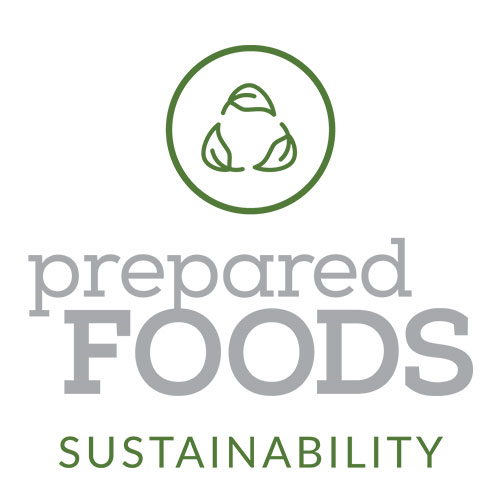
Compassionate Consumption
Starbucks, PepsiCo, Kraft Heinz, and Coca-Cola are among some of the biggest companies that committed to net-zero emissions in 2021
Gen Z’s passion for more environmentally safe manufacturing practices and products have inspired older generations to also start consuming products shaped by these values. In 2021, 78% of people are more likely to purchase a product if it is clearly labeled as “environmentally friendly”, according to a survey by GreenPrint. Waterdrop offers their naturally flavored drink cubes that were launched as a carbon-friendly option. These dissolvable cubes use 98% less plastic & CO2 than conventional bottled drinks.
Bread Alone Unveils $4M Net-Zero Energy Facility
The new facility accelerates a companywide vision to source 100% of its energy through renewable sources
Bread Alone Bakery, the family-owned, values-driven bakery and pioneer of artisan bread baking, announced the re-opening of its Boiceville Bakery & Cafe. A revitalization of Bread Alone's original bakery that first opened its doors in Boiceville, N.Y., in 1983, the location reopens as an 8,000sq-ft net-zero energy facility and a commercial bakery in the US operating on 100% renewable energy, without fossil fuels. The facility, which will serve as both a commercial bakery and cafe, will supply Bread Alone's four Hudson Valley cafes, as well as its New York City farmer's markets.
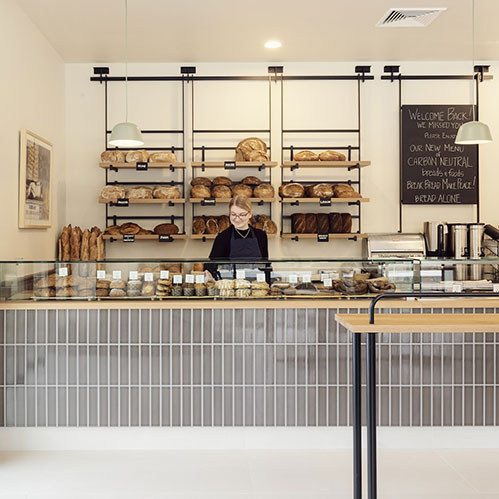
PHOTO CREDIT: James Chororos / Bread Alone
A 366kW on-site solar array will allow the bakery to renewably produce (net) all energy on-site that they consume. This renewable energy will be used to power the fully electrified building: Heuft electric ovens, induction stovetops, air source heat pumps, and engineered air flow. In addition to the Heuft ovens, the Boiceville bakery will bake breads in the original Andre Lefort wood-fired brick ovens, fueled by renewable scrap wood.
Reopening its doors in the heart of the Catskills, the net-zero bakery and cafe is Bread Alone's biggest step to date on their aggressive trajectory to prioritize stewardship of the planet in every decision and process. The completion of the net-zero energy facility follows Bread Alone's installation of solar panels on its Kingston Headquarters, the establishment of a long-standing partnership with 1% for the Planet and Climate Reality Project, and becoming Certified Climate Neutral.
ZenWTR Receives Plastic Negative Certification
The premium alkaline water brand will rescue and recycle at least 200% of its annual plastic footprint
ZenWTR®, the premium alkaline water company that comes in a bottle made from 100% recycled, certified ocean-bound plastic, received the Plastic Negative Brand Certification from the Plastic Credit Exchange (PCX). With this milestone, ZenWTR has committed to making its entire portfolio plastic negative and supporting programs that recover and recycle at least 200% of its annual plastic footprint for 2021 and onward.
In addition to producing its bottles using only 100% recycled, certified ocean-bound plastic, which supports the growth of global recycling rates and helps clean at-risk coastal environments, ZenWTR is enabling the removal of additional plastic waste from natural environments through its Plastic Negative Certification. This is yet another step the brand is taking to make a positive impact beyond their own footprint and ultimately leave the world in a better place.
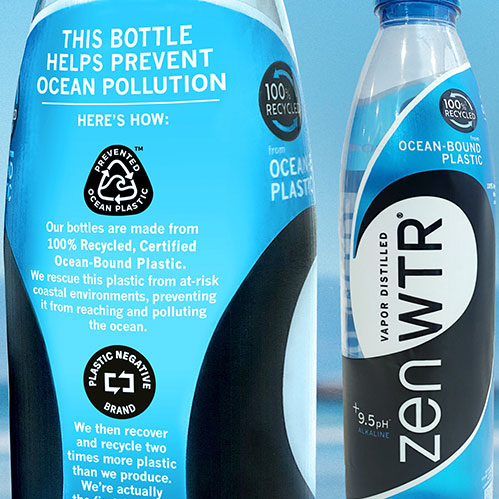
ZenWTR is enabling the removal of additional plastic waste from natural environments through its Plastic Negative Certification.
PHOTO COURTESY OF: ZenWTR
In addition to sourcing ocean-bound plastic from at-risk coastal environments in Indonesia, Thailand and Ecuador, ZenWTR is also supporting local recycling programs through its partnership with PCX in vulnerable areas most-affected by plastic pollution. One such program is the Aling Tindera collections program in the Philippines that incentivizes female market owners to turn their stores into local collection points for post-consumer plastic waste, paying local collectors cash in exchange for recovered plastics which are then sold to local recycling plants. This program increases recycling rates and closes the recycling loop while providing economic opportunity to plastic collectors and store owners alike.
As ZenWTR continues to work toward its goal of rescuing 50 million pounds of ocean-bound plastic by 2025, the brand has also received recognition for its accomplishments through a number of noteworthy sustainability awards in the last year: the Business Intelligence group's 2020 Sustainable Company of the Year Award and 2021 BIG Award for Green Product of the Year, plus the 2020 SEAL Environmental Initiative Award.
Clover Sonoma Post-Consumer Recycled Gallon Milk Jug
The company commits to extending PCR content across all gallon milk plastic jugs by 2025
Clover Sonoma, a third-generation family-owned and operated dairy and Certified B Corporation®, launched a post-consumer recycled (PCR) gallon milk jug in the United States. Starting with 30% PCR content on its organic gallon milk line, the company commits to increasing the PCR content and extending PCR content use across all Clover Sonoma gallon milk jugs by 2025. Using PCR content in plastic packaging creates a closed loop system for recycling plastic gallon milk jugs and ensures that plastic is neither created nor destroyed, but re-used for a single purpose.
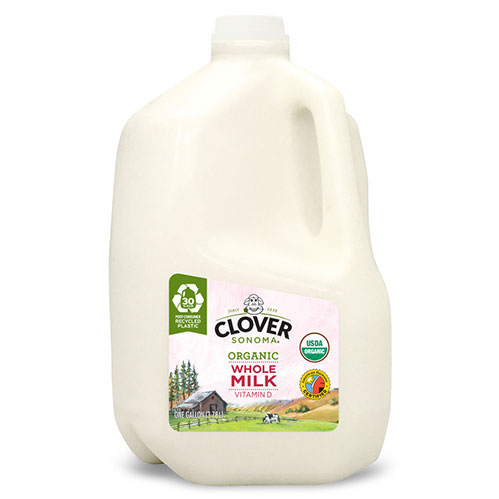
Using post-consumer recycled content in plastic packaging creates a closed loop system for recycling plastic gallon milk jugs.
PHOTO COURTESY OF: Clover Sonoma
Clover Sonoma is at the forefront of innovative, sustainable packaging solutions for the food and beverage industry having announced the first fully renewable milk carton in the United States in 2020. The company also made the conscious decision to reduce plastic waste by saying “no” to plastic caps on paper milk cartons. Being the first to come out with a 30% PCR content gallon milk jug is the next step in sustainable packaging innovation. The first PCR milk jugs will be on shelf in the first quarter of 2022 with a designated logo to educate consumers about the new packaging’s benefits.
Post-consumer recycled content is material that is made from the items that consumers recycle every day, like aluminum, cardboard boxes, paper, and plastic bottles. These materials are typically collected by local recycling programs and shipped to recycling facilities to be sorted into bales, based on the material. The bales are then purchased and melted (or ground) into small pellets and molded into new items. The new PCR plastic material can then be used for a variety of finished products, including plastic gallon milk jugs. Post-consumer recycled plastic packaging may have a slightly darker appearance and is food safe and FDA approved.
BW Packaging Systems Names Sustainable Packaging Leadership
Michelle Bryson to take on new role focused on sustainable solutions
BW Packaging Systems, the packaging equipment arm of Barry-Wehmiller, appointed Michelle Bryson to the role of global sustainable packaging leader. Bryson will lead the development of a sustainability roadmap for BW Packaging Systems, and collaborate with team members and customers on several fronts, including the usage of responsible materials, recyclability, packaging design, waste, carbon footprint reduction and more.
Bryson brings more than 30 years of packaging development experience to Barry-Wehmiller. In her previous roles with Wells Enterprises and PepsiCo, she developed and supported the development of packaging innovation and sustainability roadmaps. Most recently, to help meet 2025 sustainability goals, she led PepsiCo’s packaging team in an initiative to commercialize 100% recycled PET plastic (rPET) for the Tropicana flagship brand, Tropicana Essentials, as well as for Quaker Oat Beverage’s bottles, incorporating floatable shrink-sleeve labels.
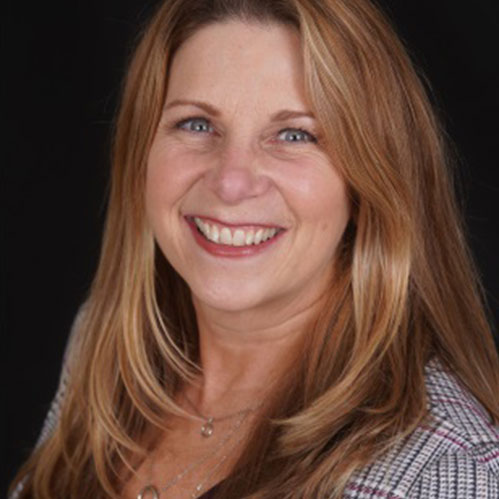
Michelle Bryson, global sustainable packaging leader, BW Packaging Systems
PHOTO COURTESY OF: BW Packaging Systems
As Global Sustainable Packaging Leader, Bryson will collaborate with customers, packaging suppliers and industry associations to develop sustainable packaging strategies that drive toward cleaner manufacturing. She will also work closely with BW Packaging Systems’ innovation teams to ensure that all future packaging solutions are developed with due consideration of local legislation, recycling streams, carbon emissions and other environmental priorities.
BW Packaging Systems provides a broad range of proven packaging solutions by bringing together some of the industry’s most trusted and innovative brands: Accraply, BW Flexible Systems, BW Integrated Systems, Pneumatic Scale Angelus and Synerlink. Collectively, BW Packaging Systems companies offer easy-to-use technology for primary packaging, material handling, secondary packaging, labeling and sleeving, and process and inspection, as well as complete packaging line integration.
2022 State of Sustainability in America Consumer Insights and Trends Report
Evidence suggests that the pandemic may have ignited a stronger conviction towards environmental protection and sustainable behaviors
Natural Marketing Institute, a leading research and global intelligence provider, presented its 2022 State of Sustainability in America Consumer Insights & Trends Report. This report is the 20th annual US report Natural Marketing Institute has published on the state of the sustainability market.
The 2022 State of Sustainability in America Consumer Trends and Insights Report measures and describes the marketplace for sustainable products and services, the consumers who use them, consumers’ expectations of corporate behavior, and attitudes toward environmental and social issues. In addition, it uncovers consumer motivations and the challenges they encounter in their pursuit to become increasingly aligned with a more sustainable lifestyle.
While some challenges may exist regarding the relevance of sustainability in a world which appears to have been turned on its end, many of the latest findings provide evidence that sustainable ideals and attitudes have taken on a higher level of acceleration and importance in consumers’ mindset.
In addition, there appears to be evidence that the COVID-19 pandemic may have ignited a stronger conviction towards environmental protection and sustainable behaviors as the fragility and interconnectedness of the human and planetary condition has been made more apparent than ever.
Our findings reveal consumers are clearly showing more sophistication within the realm of sustainability – with a greater understanding of its breadth, depth, and implications, and they pick the elements that mean the most to them. In this year’s research, we are finding a heightened awareness and concern over the planet’s health, which appears to be causing shifts in consumer behaviors. Instead of adopting environmentally-friendly behaviors for more self-directed and personal benefits, consumers look outward to the environment around them and realize they have to take a bigger part in fixing the ills disrupting planetary health.
